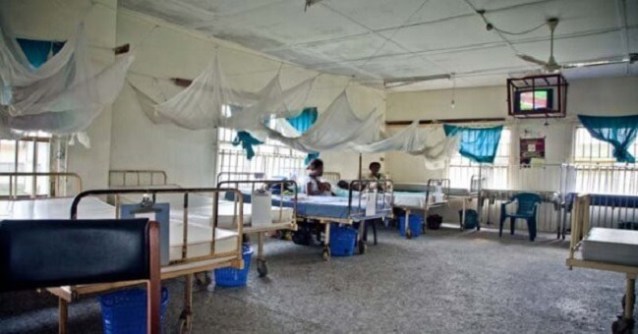Following the malaria contingency plan that was put in place in 2016, severe cases of malaria and mortality have since decreased by 50 per cent.

There has also been estimated reduction in the country’s malaria burden with 430,000 fewer cases recorded in 2017 than in 2016, according to the World Health Organisation report released last year.
These achievements are attributed to many factors and one of these includes the outstanding role played by Community Health Workers.
Information from Rwanda Biomedical Center indicates that more than 50 per cent of malaria cases are now treated by Community Health Workers.
With the introduction of Home Based Management of Malaria (HBM) for both adults and children through Community Health Workers, malaria patients are being diagnosed and treated early.
Before this strategy was introduced, however, patients had to travel to health facilities, far from their homes, to seek medical services, a hunch that delayed service delivery and in turn limited or rather increased the number of severe malaria cases and mortality.
Dr Aimable Mbituyumuremyi, the Malaria and Other Parasitic Diseases Division Manager at Rwanda Biomedical Centre, said that empowering Community Health Workers through training in fever malaria diagnosis and treatment has been a key to this success.
Before 2015, Community Health Workers could only manage malaria in under-five, but in 2016 results showed that adult people can also be managed by well-trained CHWs.
With a strong supervision of Health Centers in the catchment areas, CHWs are well equipped to manage fever at the community level but also provide other health related services and are trained on how and when to refer or notify any complicated cases, he said.
“CHWs are receiving malaria Rapid Diagnostic Tests and Antimalarial Drugs so that they can easily provide services to those in need. Malaria free of charge services to the poorest people (Ubudehe 1 and 2) at the community level has greatly contributed to increased services seeking,” he added.
Other strategies in place
More key strategies for malaria control include mass distribution of bed nets to the whole population (Universal coverage), routine distribution of bed nets in most vulnerable groups (pregnant women and under one year).
They also include Indoor Residual Spraying (IRS) in the most affected districts, early diagnosis and treatment at community level and educating communities for malaria prevention and services use.
From 2016 to 2018, malaria cases decreased more than 10 times in Nyagatare and Kirehe districts where Indoor Residual Spraying (IRS) has been sustainably implemented.
Trials still prevail
Malaria continues to represent a real public health concern in Rwanda despite evident progress and numerous efforts being combined for malaria control.
Dr Mbituyumuremyi said that there is the issue of budget limitation to cover indoor residual spraying for malaria control in all 15 high malaria burdened districts for a proper malaria control in Rwanda.
Only 5 of 15 districts were sprayed in 2017 and 2018.
He also noted an increased work load for Community Health Workers leading to challenges in proper reporting.
“Inexistence of cross-border malaria control strategies for integrated regional malaria control is also another challenge.”
Plans for this year and going forward
There are plans of extending and sustaining indoor residual spraying in at least 10 high endemic districts.
Dr Mbituyumuremyi noted that there are plans of introducing universal coverage with effective long-lasting insecticide-treated nets by introducing new types of nets (PBO and Interceptor G2 Nets).
The ministry also plans to reduce malaria-related mortality cases through early diagnosis and treatment at the community level.
There is also going to be improvement of Malaria Data Quality for proper decision making at all levels, putting in more efforts in regional malaria control initiatives and exploring outdoor control of mosquitoes, he added.

